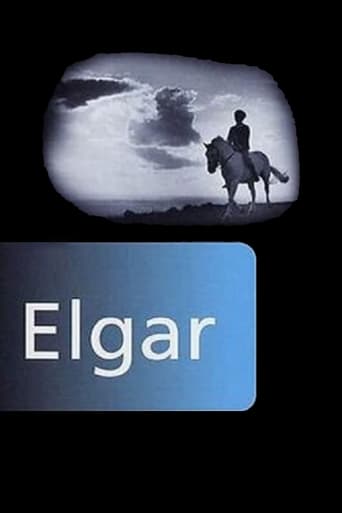st-shot
In an outstanding display of craftsmanship Ken Russell with a small budget and skeleton crew do a superb job in giving life an energy to this documentary on the life of composer Edward Elgar. From it's striking opening of a young Elgar riding his horse across the bucolic Worcester, England countryside to the sober partnering of "Hope and Glory" with WW 1 newsreel footage Russell vividly evokes the man and the times by seamlessly infusing his music into the striking imagery creating a tight rhythm dictated by the music. Elgar was a self taught musician who worked in his father's music store, eventually dabbling in composing, content to let life take its course when he marries and his wife becomes his biggest booster and promoter. The career takes off as he first finds success in Germany then back in GB as Hope and Glory becomes GBs second national anthem especially during the Great War. Elgar eventually has mixed feelings about its jingoistic tone and retreats from society where the widowed composer lives his days out with a pack of dogs that his wife would not let him own or have in the house after they married.Russell does wonders with the little material he has (Elgar was very private) as he economically moves his story forward, raising the tenor of narration with strong sober compositions and wonderful pastoral shots of the nature loving Elgar the music speaking for him as he rides his pony, bicycle, automobile about the Malvern Hills. There are also some other excellent cost cutting and efficient moves such as conveying Elgar's smashing tour in Germany by way of post cards and the brilliantly staged and edited scene at the Opening of Wembley in 1934 where Elgar detaches himself from Pomp and Circumstance for the last time. Free of his extravagant excess Elgar may well be Ken Russell's most accessible work, it certainly is one of his better ones when you consider the threadbare budget.
TheLittleSongbird
Ken Russell is not for all tastes, for me there is stuff of his I do like but others not so much, so I can definitely see either side. I absolutely love Elgar though, for me it is quite possibly the best that he has ever done and also one of the best documentaries ever made. The photography is just beautiful, the final shot will stay with me forever. The use of long shots and none of the actors speaking is for then an innovation that Russell in Elgar mastered. The scenery is just breathtaking, while Elgar's music is glorious, very lyrical and sometimes with pathos. It is helped by being beautifully played as well, that always does help. The dramatisations are subtle and beautifully sympathetic, even without words the body language and expressions told so much. The biographical elements are just fascinating, I love documentaries where you have a good amount about the subject yet the documentary reveals things you don't know. That was the case with Elgar. Russell's directing is more restrained than his later output and all the better for it, nothing overblown and distasteful in sight.All in all, no complaints whatsoever about Elgar. If you love classical music it is a must see, truly one of the best of its kind. 10/10 Bethany Cox
tedg
Taste is a very strange thing, among the strangest. It fascinates, especially when I encounter something that repels me that many people like. Smart people or apparently so. And the encounter is through film.This is such a thing. It features the music of Elgar. His music is vapidly florid, like cheap, loud perfume. Like tooled leather on a carriage just there to fill the space with decoration. But was a credible entrant in a national competition when all symphonic music was such, and so became a British champion, not unlike a soccer player. These national feelings color the love of the music, establishing it as normal. Its why Constable is venerated. Its not that he was great or even notable artist, but dammit he painted England!Along comes Ken Russell, a young filmmaker. From his later work, we know he is a man of overblown excess, of cheap shapes and trick colors. So it is no wonder that he was drawn to music of the same ilk. If you don't like snippets of this music, you won't like the film, because that is the core of it.They are excepted and played all out of context, and the fact that it doesn't matter is remarkable. There is no long form musical narrative, no development, just rosy conversation. While listening, we see an illustrated life, partly re-enacted.Its dreadful, every bit of it. And highly regarded all around. Why? Its a mystery, a beautiful mystery.Ted's Evaluation -- 1 of 3: You can find something better to do with this part of your life.
monabe
A wonderfully evocative film which remains vivid to this writer even though I have not seen this TV production for many years. At the time it set a standard for sympathetic dramatisation of the lives of musical icons. This work is light years away from Ken Russell's later excursions into cinematic pyrotechnics and excesses, but the roots of that curiosity about musical genius is clear in "Elgar".If you have seen "Hilary and Jackie", you will want to see this moving film that tells the story of the composer of the piece of music that Jacqueline Du Pre will always be associated with: Elgar's Cello Concerto.
